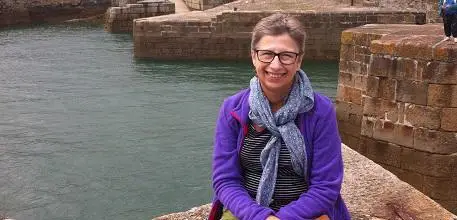Southampton to run NHS programme for personalised cancer vaccines
Thousands of cancer patients are set to access trials of personalised cancer vaccines in a new ‘match-making’ service.
The Southampton Clinical Trials Unit (SCTU) has been chosen to run the NHS England programme.
The NHS Cancer Vaccine Launch Pad aims to speed up the development of the potentially ground-breaking cancer treatments.
It will do this by helping thousands of NHS patients access clinical trials. University Hospital Southampton is one of the first sites to open.
Personalised cancer vaccines
Personalised cancer vaccines are a type of immunotherapy. This is a treatment that boosts the body’s own immune system to help it find and destroy cancer.
They are made by analysing a patient's tumour, and using that information to create a vaccine tailored to that patient. The aim is to create an immune ‘memory’ that can prevent a cancer from returning after surgery or chemotherapy.
The SCTU is based within the University of Southampton’s Centre for Cancer Immunology. It is a world-leading Cancer Research UK trials unit. It has expertise coordinating large-scale platform trials and running complex cancer immunotherapy trials.
Professor Gareth Griffiths, Director of the SCTU, said:
“Cancer vaccines have the potential to improve the way we treat the disease, particularly for those cancers where treatment options are currently limited or very demanding on patients’ bodies.
“Although there have been some trials of cancer vaccine candidates in the past, there are a new generation of vaccines that that are personalised to individual biological features of a patient’s disease.
“We are delighted to have been chosen to run the national platform, which will bring together a number of vaccine trials so that patients can access these trials more easily. This will improve our research knowledge and hopefully lead to improved treatment outcomes for patients.”
The NHS Cancer Vaccine Launch Pad
Trials available through the NHS Cancer Vaccine Launch Pad will each test a new investigational cancer vaccine. The first trial is now recruiting patients with a type of colorectal cancer at a number of hospitals across England.
As the programme expands, more sites are expected to join. In addition, vaccines targeting other types of cancer will be brought on board. This will give more patients the opportunity to take part.
Patients receiving cancer treatment on the NHS will be able to have tumour samples sent to a laboratory for analysis, to discover if they are eligible to take part in a cancer vaccine trial.
Amanda Pritchard, NHS chief executive, said:
“The NHS is in a unique position to deliver this kind of world-leading research at size and scale, and as more of these trials get up and running at hospitals across the country, our national match-making service will ensure as many eligible patients as possible get the opportunity to access them.”

Being part of a cancer vaccine trial
Ali Richards, 63, from Poole in Dorset took part in a previous cancer vaccine trial in Southampton.
She decided to take part after her head and neck cancer returned following initial treatment. The trial was run by the SCTU and supported by the NIHR Southampton Clinical Research Facility.
“My oncologist’s reason for suggesting the trial was that it could possibly help my immunity going forward and help protect me,” she explained.
"For me, I wanted to do it because I thought it could help other people not to go through what I’d just been through. If there was potentially something that was going to be curative or improve their immunity in some way, then wouldn’t that be brilliant? It was my way of trying to give back after all the treatment and care I’d had.
“It’s really important that we accelerate progress in cancer vaccine trials. Traditional treatments are not kind by their nature, and anything that can make treatment more simple, more effective, less invasive, has got to be a good thing.
“Cancer is awful, any kind of cancer. Living with the fear that cancer might come back is not nice. If we could free people from that worry and concern, that would be an amazing thing to happen.”